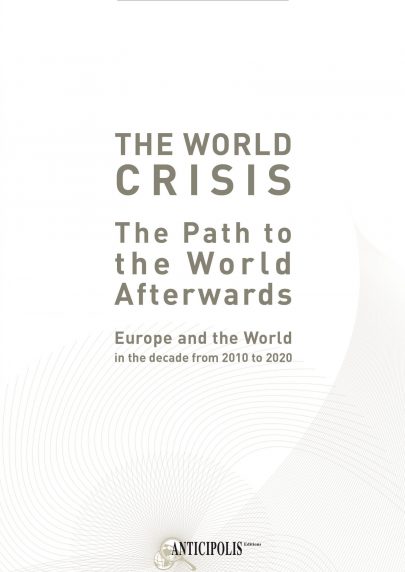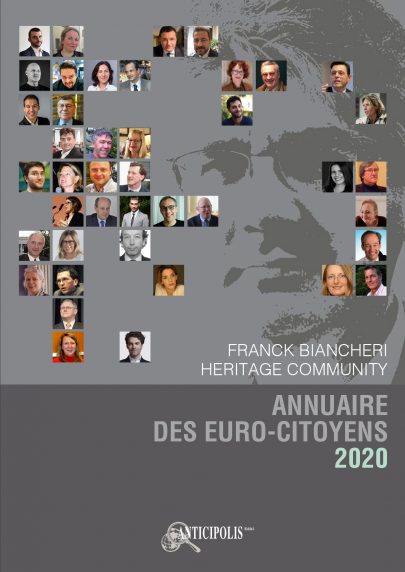GEAB 160


The shadow of Web3 is now looming on the horizon.[1] It is already presenting itself as a new revolution, 25 years after the arrival of the Internet, from which our societies are only just beginning to recover. A new stage of decentralisation and disintermediation, a reaffirmation of Internet user’s freedoms (robbed by Web 2.0 and its major predators[2]), a revolution in the monetary system, the democratisation inherent in the new model… There is enough to frighten the powers (banks, multinationals, big tech) which were beginning to regain control of the Internet with large-scale regulation and control of the circulation of ideas. And now a new wave of transformation promises to sweep away the beautiful new walls that had been built, transforming citizen web 1.0 into merchant web 2.0 and channelling revenues to a few large new tech companies.
In the perspective of this new stage of transformation (and in the vein of the trend of “return to reality” that we identified in October 2020)[3], we anticipate that the West is about to be seized by huge doubt as to the relevance of part of the transition/innovation projects and enterprises. This vast crisis will result from the questioning of all the players, including (or even in particular) the champions of the transition, namely big tech, which we believe is preparing to join the anti-progress camp.
Chronicle of a crisis foretold: the rise in key interest rates
The trigger for this vast questioning is already known. It is the increase in key interest rates of the American and European central banks. Everything is being done to postpone it as long as possible and to continue to support companies and purchasing power for as long as possible. But the huge amounts of liquidity created by the crossfire of all the monetary and fiscal weapons at the disposal of central banks and governments (low taxation, increased public spending, indebtedness, monetisation of debts, interest rates at the bottom) lead to a monetary devaluation which contributes to the inflationary trend we know. The problem is that the worse inflation gets, the more expensive it is to run the economy in terms of social welfare and production costs, reducing the impact of the effort made.
With 6.7% inflation in the US in November, the population will not last much longer[4] despite the 1.7 trillion of Biden’s social and environmental plan,[5] the efficiency of which will be diluted in the ocean of debt, inflation and evaporation resulting from the difficulties of controlling the allocation of funds (in which pockets will these sums really end up?). The Fed has therefore already started to tighten policy[6] and is continuing to do so.[7] As for rates, three increases are expected in 2022.[8] On the ECB side, lower inflation and a more optimistic speech on its transitory nature help it to project a first rate hike in 2023 only.[9] But the euro is already losing value against the dollar[10] and it is likely that this gap (currently welcome to boost European exports) will become a problem if US rate hikes depreciate the European currency too much against the dollar, forcing the ECB to follow the Fed earlier than it currently expects.
We therefore anticipate that by mid-2022 at the latest (but not before the end of April, during which the French elections will take place), a rise in rates will burst the Western financial markets bubble largely led by technology stocks, closing the stock market chapter of the last decade, and forcing a rethink of all digital transition strategies… even Bank of America is now saying so.[11]
At that point, the West will have to take stock of the headlong rush it has made to remain in pole position at the global level and note that it is increasingly lagging behind the technological progress led by Asia (and not only China)[12] despite (or even because of) the stratospheric debt into which this race has dragged it.
6G: Capitulation on 5G cannot lead to victory on 6G
It was with 5G that the West was overtaken by China in 2018. Even if America seems to be going upstream by mobilising a “Western” camp (the open RAN we have already mentioned) and sanctioning the competition (Huawei), this is in fact what we call a “capitulation” because “fair competition” has ended. By launching the race to the 6G, the US is trying another technique to regain its leadership position[13]: while 5G is far from being deployed (70% of 5G subscribers are in China[14] and even if coverage is improving rapidly in Europe and the US, numerous hassles are keeping deployment prospects at bay[15]) and no one yet knows what 6G could be used for,[16] the race is already on to impose its technologies and flagships in the negotiation of future international standards at a cost of billions of dollars.[17] The aim is clearly no longer to provide society with the needed tools to function better, but to beat systemic rivals; worse, the energy and money devoted to 6G are inevitably a loss for the deployment of 5G, which is essential to the digital transition and the competitiveness of Western companies. As Khmer Times (Vietnamese) reminds us, “6G should not be a geopolitical battleground”.[18]
Login

Elon Musk has just been named Man of the year. Yet the SpaceX empire faces a new threat: a technological disruption. His promises have become a global communication success, reaching [...]
As you may have noticed, the last “populists” on the planet are all in trouble. They are no longer in fashion obviously. The new generations propelled to the forefront of [...]
In Germany, three parties have just successfully created a new government in record time through the signing of a coalition treaty and the election of Scholz by the Bundestag. Our [...]
As we noted last year, the health crisis has accelerated all the systemic transformation projects that had been languishing hopelessly in the back of drawers of our governments and companies [...]
Economy: Fleeing into the virtual // Prices are rising while growth is not forthcoming and commodity prices are no longer even contributing to inflation. The quality of products and services [...]








Comments